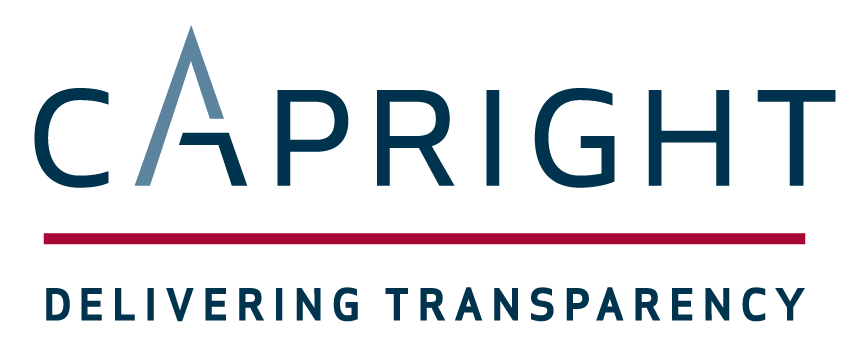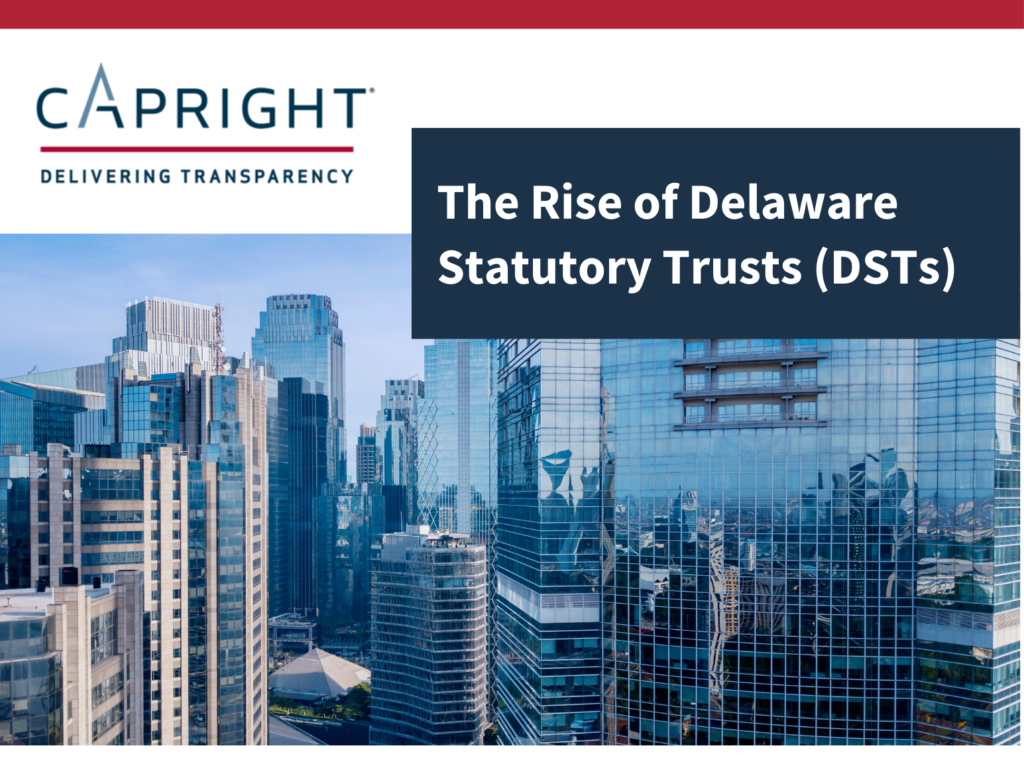The Rise of DSTs and the Critical Role of Accurate Valuations
April 23, 2025
Delaware Statutory Trusts (DSTs) have evolved from a niche structure into a core component of the 1031 exchange landscape. Once primarily used by retail investors seeking passive real estate exposure, DSTs are now increasingly institutionalized, offering fractionalized interests in high-grade real estate assets with sponsor-managed operations. As their adoption accelerates, the valuation of DST-held assets has become a linchpin issue for sponsors, investors, and regulatory stakeholders alike.
DSTs: Structural Appeal and Capital Market Impact
DSTs are favored for their ability to satisfy IRS 1031 exchange requirements while enabling streamlined
investor access to diversified real estate portfolios. Investors acquire beneficial interests in a trust that holds title to real assets, typically stabilized, income-producing properties. DSTs allow for a fixed asset base, passive income, and non-recourse debt—all attributes that align well with aging investor demographics and advisors managing tax-sensitive capital.
For many, a DST investment is used as an initial step in a longer process whereby investors participate in a 721 UPREIT transaction or wait for a REIT’s option to purchase their DST shares with the end goal of gaining ownership of Operating Partnership Units and/or REIT shares. This allows investors to move ownership from individual, illiquid assets into a large, diversified portfolio of institutional real estate with significantly better liquidity characteristics, all the while deferring capital gains tax.
In recent years, capital inflows into DST structures have surged. This growth has been fueled by both increased sponsor sophistication and a tightening regulatory environment around traditional TIC (Tenants-in-Common) structures. DST fundraising peaked in 2022 at $9.2B, reflecting heightened investor demand and a favorable market environment. After moderating in 2023, DST offerings rebounded in 2024, raising approximately $5.7B. Industry analysts now project continued robust growth, potentially reaching between $7B and $8B in 2025. As DSTs scale, the quality of underlying asset valuations has emerged as a fundamental component of financial transparency, fiduciary compliance, and investor protection.
The Need for Robust, Independent Valuation
Unlike traditional private real estate vehicles, DSTs face a unique set of valuation challenges:
- Illiquidity and Limited Secondary Markets: The absence of robust secondary trading makes periodic valuation inherently model-dependent.
- Sponsor Fees and Load Structures: Complex fee arrangements and upfront costs can impact investor equity and must be appropriately accounted for in valuation.
- Asset Concentration Risk: DSTs often invest in single assets or highly concentrated portfolios, increasing the sensitivity of valuation models to asset-level assumptions.
- Regulatory Scrutiny: As the DST industry grows, so does oversight from the SEC, FINRA, and other regulatory bodies demanding higher standards in valuation methodology and disclosure.
In this context, valuation cannot be reduced to a compliance checklist—it is a core risk management tool. Inaccurate or biased valuations expose all parties to reputational, financial, and legal risk.
Why Capright Is Setting the Standard for DST Valuation
Capright has emerged as the valuation advisor of choice for DST sponsors, fund administrators, broker dealers, and fiduciaries. Our firm’s depth of expertise in commercial real estate valuation—across all asset classes and geographies—enables us to address the complexities unique to DST structures with confidence and precision.
Key differentiators include:
- Methodological Rigor: We employ valuation frameworks that integrate income capitalization, discounted cash flow, and market-based metrics, calibrated for the specific legal and operational structure of each DST.
- Independence and Objectivity: Capright is not affiliated with brokerage firms or DST sponsors. Our valuations are conflict-free, fully supportable, and built to withstand regulatory and investor scrutiny.
- DST-Specific Knowledge: We understand the impact of trust structure constraints, sponsor-level credit risk, and capital stack composition on asset performance and valuation outcomes.
- Regulatory Awareness: Our team remains current with evolving FINRA guidance, SEC commentary, and IRS rulings related to DSTs, ensuring our valuation approaches are compliant and defensible.
As DSTs continue to attract billions in capital, stakeholders across the industry are re-evaluating their valuation practices to meet higher standards of diligence and transparency.
Capright is not just participating in this shift—we are leading it.

Principal
(214) 446-5307
tgreen@capright.com


